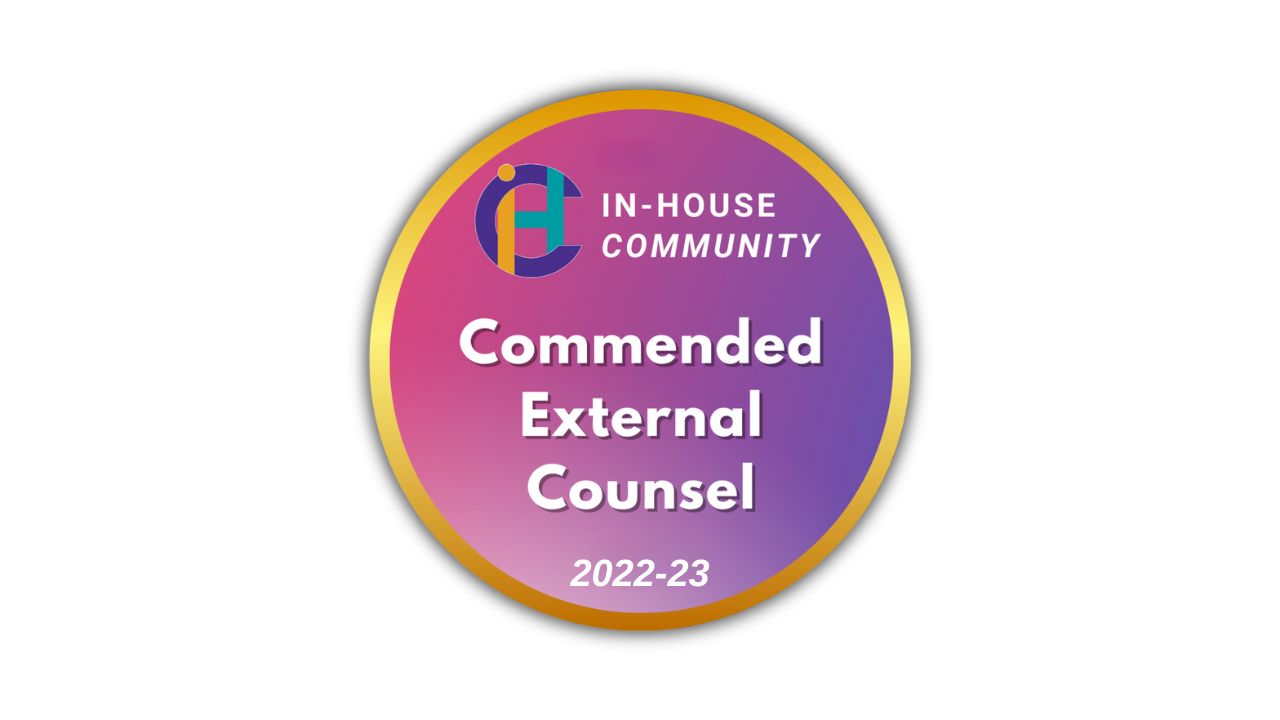December 13, 2023
India UAE China Singapore Vietnam Hong Kong Thailand South Korea Philippines In recognition of outstanding contributions and commendable service in external legal support, the Commended External Counsel of the Year 20233-2023 awards serves as a testament to the invaluable partnership between private practice lawyers and in-house legal teams. Selected through recommendations, votes and testimonials from the in-house counsel and other buyers of legal services in Asia and Middle East, this accolade highlights the crucial role played by these legal professionals in extending and enhancing the capabilities of in-house legal departments. Here are the Commended External Counsel 2022-2023, Malaysia*. Deepak Sadasivan Adnan Sundra & Low deepak.sadasivan@asl.com.my Deepak has been extensively involved in corporate work including acquisitions, listings, joint ventures and corporate restructuring exercises, as well as corporate and commercial litigation. Since 1999, he has been primarily involved in capital markets and finance work, and has advised extensively on numerous transactions involving project finance, Islamic finance, derivatives, structured finance and securitisation. He was the managing partner of the Firm for over a decade and during his tenure, the Firm was privileged to have received various awards and accolades from inter alia International Financial Law Review, Islamic Finance News and Asian Legal Business. He is individually ranked as a Band 1 lawyer in Banking & Finance and Islamic Finance by Chambers & Partners, as an Elite Practitioner in Banking & Finance by Asialaw Profiles, and as a Hall of Fame lawyer in Banking & Finance, Capital Markets and Islamic Finance by the Legal 500. Gilbert Gan Zaid Ibrahim & Co (a member of ZICO Law) gilbertgan@ziclegal.com Gilbert is the Managing Partner of Zaid Ibrahim... December 13, 2023
India UAE South Korea Singapore Hong Kong China Malaysia Vietnam Philippines In recognition of outstanding contributions and commendable service in external legal support, the Commended External Counsel of the Year 20233-2023 awards serves as a testament to the invaluable partnership between private practice lawyers and in-house legal teams. Selected through recommendations, votes and testimonials from the in-house counsel and other buyers of legal services in Asia and Middle East, this accolade highlights the crucial role played by these legal professionals in extending and enhancing the capabilities of in-house legal departments. Here are the Commended External Counsel 2022-2023, Thailand*. Napatorn Dasananjali Termglinchan Baker McKenzie napatorn.termglinchan@bakermckenzie.com Napatorn is active in the consumer goods and retail and healthcare and life sciences industries, as well as investigations, compliance and ethics and mergers and acquisitions practices. She has advised numerous multinational clients on their operations in Thailand. She regularly advises on issues relevant to foreign investors, such as compliance, foreign investment, consumer protections, mergers and acquisitions, and corporate structures. Napatorn is particularly fluent in advising on legal issues surrounding licensing and approval requirements for consumer products and requirements of e-commerce and multi-level marketing businesses in Thailand. She is also experienced in corporate investigation work, particularly corporate fraud and misconduct. I am truly honored to be recognized by clients, colleagues and the in-house community for this award. I share this award with the strong Baker McKenzie team and look forward to continuing delivering services of highest quality to our clients Samata Masagee DLA Piper Kudun Sukhumananda Kudun & Partners Weerawong Chittmittrapap Weerawong C&P Stephen Jaggs Allen & very Arkrapol Pichedvanichok Chandler MHM Thanathip Pichedvanichok Thanathip & Partners... December 13, 2023
India Singapore Philippines Vietnam Hong Kong China Thailand Malaysia South Korea In recognition of outstanding contributions and commendable service in external legal support, the Commended External Counsel of the Year 20233-2023 awards serves as a testament to the invaluable partnership between private practice lawyers and in-house legal teams. Selected through recommendations, votes and testimonials from the in-house counsel and other buyers of legal services in Asia and Middle East, this accolade highlights the crucial role played by these legal professionals in extending and enhancing the capabilities of in-house legal departments. Here are the Commended External Counsel 2022-2023, UAE*. Andrew Johnston Addleshaw Goddard Sara Khoja Clyde & Co Sandeep Dhama Stephenson Harwood Husam Hourani Al Tamimi Philip Ireland Maples Christopher R. Williams Bracewell Will Seivewright DLA Piper Dina Mahdi Hadef & Partners Ben Ward Allen &... December 13, 2023
India Singapore UAE Hong Kong China Thailand South Korea Malaysia Philippines In recognition of outstanding contributions and commendable service in external legal support, the Commended External Counsel of the Year 20233-2023 awards serves as a testament to the invaluable partnership between private practice lawyers and in-house legal teams. Selected through recommendations, votes and testimonials from the in-house counsel and other buyers of legal services in Asia and Middle East, this accolade highlights the crucial role played by these legal professionals in extending and enhancing the capabilities of in-house legal departments. Here are the Commended External Counsel 2022-2023, Vietnam*. Nguyen Anh Tuan Bizconsult “Mr. Tuan is the Managing Partner at Bizconsult Law Firm, one of the most reputation professional law firms in Vietnam. Practicing the law since 1998, he has advised numerous companies around the world – including industrial companies, financial institutions, and investment in a wide range of M&A transactions. Main areas of practice: Foreign Investment, Corporate & Commercial, Mergers & Acquisition, Capital Market, Emloyments & Labors, Intellectual Property, Franchise, Real Estate.” I am very honored to be recognized as a Commended External Counsel of the Year 2022-2023, alongside the most reputable lawyers in the profession. I’d like to express my special thanks to the in-house counsels for their votes and support extended to me. Also big thanks to our clients, my colleagues, and the In-House Community for survey and organizing this very impressive Counsel of the Year Award e-ceremony. Bui Ngoc Hong LNT & Partners hong.bui@lntpartners.com Mr. Hong Bui is a Partner of LNT & Partners. He is in charge of the firm’s Corporate practice group. He advises many aspects of investment... December 13, 2023
India Philippines UAE Vietnam Hong Kong China Thailand Malaysia South Korea In recognition of outstanding contributions and commendable service in external legal support, the Commended External Counsel of the Year 20233-2023 awards serves as a testament to the invaluable partnership between private practice lawyers and in-house legal teams. Selected through recommendations, votes and testimonials from the in-house counsel and other buyers of legal services in Asia and Middle East, this accolade highlights the crucial role played by these legal professionals in extending and enhancing the capabilities of in-house legal departments. Here are the Commended External Counsel 2022-2023, Singapore*. Aloysius Ng Allen & Gledhill Ameera Ashraf Wong & Partners Hanim Hamzah KPMG Law Alban Kang Bird &Bird Eng Beng Lee Rajah & Tann Shirin Tang Morrison & Foerster Edmund J Kronenburg Braddell Brothers Craig Loveless Norton Rose Craig Loveless Allen & Gledhill Bryan Tan Reed Smith Rajesh Sreenivasan Rajah & Tann Joyce A. Tan Joyce A. Tan & Partners Jai S. Pathak Gibson Dunn Valerie Kong Clifford Chance Fatim Jumabhoy Herbert Smith... December 8, 2023
India Singapore UAE Vietnam Philippines China Thailand Malaysia South Korea In recognition of outstanding contributions and commendable service in external legal support, the Commended External Counsel of the Year 20233-2023 awards serves as a testament to the invaluable partnership between private practice lawyers and in-house legal teams. Selected through recommendations, votes and testimonials from the in-house counsel and other buyers of legal services in Asia and Middle East, this accolade highlights the crucial role played by these legal professionals in extending and enhancing the capabilities of in-house legal departments.Here are the Commended External Counsel 2022-2023, South Korea*. Dae Sagong Yoon & Yang dsagong@yoonyang.com Dae Sagong is a partner at Yoon & Yang LLC. Mr. Sagong has focused his practice on Energy & Utilities, Environmental & Waste, Project & Real Estate Development, Financing & Investing, M&A, Construction & Infrastructure, SOC, Aviation. Mr. Sagong has successfully advised and counselled numerous clients including Macquarie Asset Management, Macquarie Capital, IGIS Asset Management, KDB KIAMCO, Vena Energy, ØRSTED, Aquila Capital, Argo Energy, GS E&C, Hoban, Korean Air, KDB, Korea Eximbank based on his deep understanding of Korean legal system and expertise of such practices. I consider this award as a recognition bestowed by IHC on behalf of our clients, and therefore, I sincerely express my gratitude once again to both the esteemed clients and to IHC. I aim to share this honor with the entire Yoon & Yang LLC one team. Edward Dhong Yoon & Yang Daniel Sae-Chin Kim O’Melveny & Myers Iksoo Kim Paul Hastings Cho Young Kyun Kim & Chang Sean(Sungwoo) LIM Lee & Ko Jae Hoon KIM Lee & Ko Claudia... Upcoming Events
Recent Past Events









